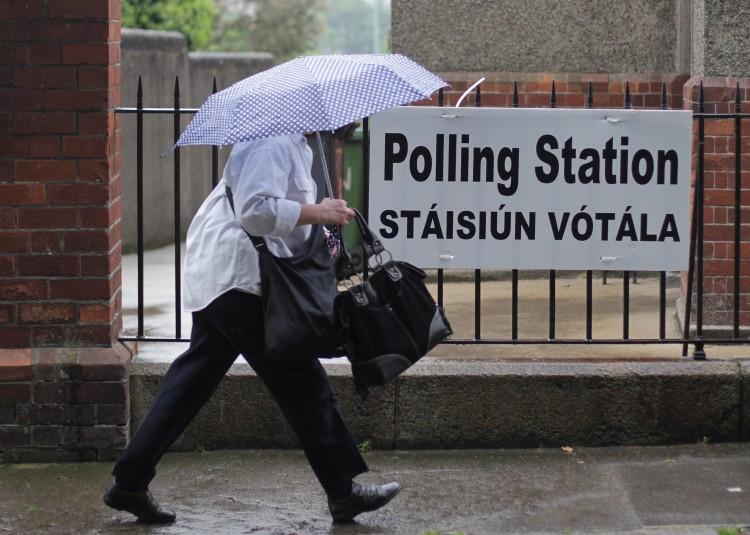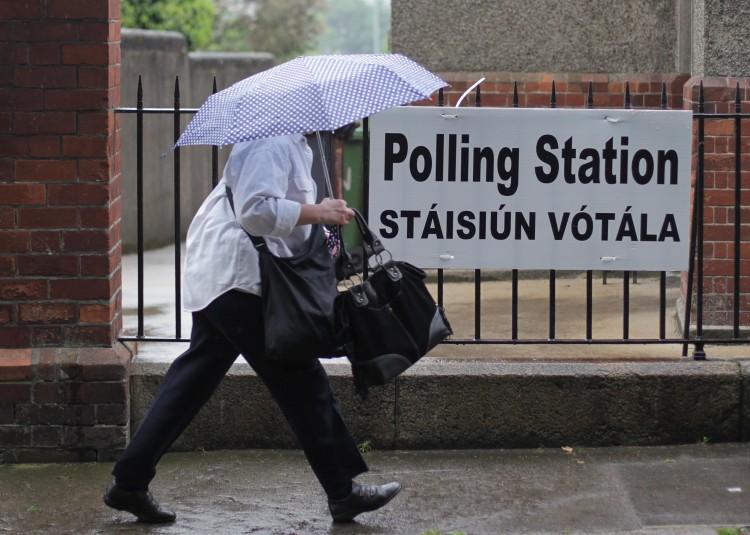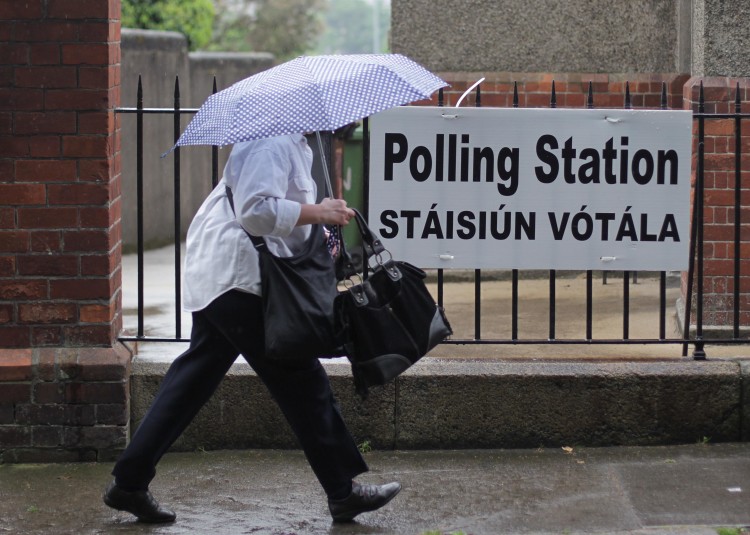Voting concluded on Thursday evening in the Irish referendum on the European Fiscal Treaty, with an unexpectedly low voter turnout threatening government plans to secure a Yes vote on the agreement to write strict budget controls into Ireland’s constitution.
Irish Turnout Low for European Stability Treaty Vote
Voting concluded on Thursday evening in the Irish referendum on the European Fiscal Treaty, with an unexpectedly low voter turnout threatening government plans to secure a Yes.

A voter arrives at a polling station to vote in the referendum on the European fiscal treaty in Dublin, Ireland on May 31, 2012. Ireland is the only one of 25 nations which is putting the fiscal pact to a national vote. The pact, signed by all EU members except the Czech Republic and the UK, allows EU member states to co-ordinate their budget policies and impose penalties on rule-breakers. PETER MUHLY/AFP/GettyImages
|Updated:






